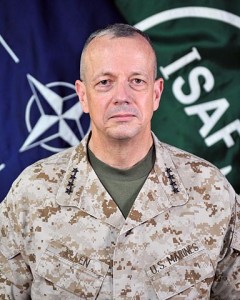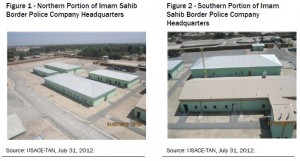Karzai Expels Special Operations Forces From Afghan Province Over Program at Heart of Petraeus’ “Success”
Today’s story in the Washington Post covering Afghan President Hamid Karzai’s decree expelling US Special Operations forces from a province just outside Kabul illustrates how completely the upper levels of the US military have been ignoring reality in Afghanistan. The Post reported that the “announcement appeared to come as a surprise to American military officials”. For those who have been paying attention, it has been clear that Afghanistan has been upset for years over a program tied to US Special Operations forces that develops what amounts to private militias which are sometimes under the Afghan Local Police name and sometimes not. These groups are particularly lawless and have been reported to participate in revenge killings, disappearances and torture (which are also the specialties of JSOC). And this program was at the heart of David Petraeus’ operations when he took over in Afghanistan:
Jack Keane, a former Army general and a mentor to David H. Petraeus, the American commander in Afghanistan when the program began, said that “the brilliance of the program is also the vulnerability” because recruits are selected by elders, not by Americans. Although there has always been some form of NATO vetting, “we’re totally dependent on their judgment as to who they’ve selected.”
And some groups continue to warn of the dangers of reintroducing militia-like forces to a country long bedeviled by warlords. Last year, Human Rights Watch reported instances of killing, rape, theft and other abuses among the local police that raised “serious concerns about the A.L.P. vetting, recruitment and oversight.” The group added: “Creation of the A.L.P. is a high-risk strategy to achieve short-term goals in which local groups are again being armed without adequate oversight or accountability.” (At the time, NATO said that some aspects of the report were dated or incorrect.)
Although a short pause in Special Operations forces training of Afghan Local Police took place back in September when the article quoted above came out, it is clear now that the “re-screening” of ALP personnel was a sham and that the abuses under this program continue. Here is Khaama Press describing Karzai’s decision:
After a thorough discussion, it became clear that armed individuals named as US special force stationed in Wardak province engage in harassing, annoying, torturing and even murdering innocent people. A recent example in the province is an incident in which nine people were disappeared in an operation by this suspicious force and in a separate incident a student was taken away at night from his home, whose tortured body with throat cut was found two days later under a bridge. However, Americans reject having conducted any such operation and any involvement of their special force.”
“The Ministry of Defense was assigned to make sure all US special forces are out of the province within two weeks,” the statement said adding that “All the Afghan national security forces are duty bound to protect the life and property of people in Maidan Wardak province by effectively stopping and bringing to justice any groups that enter peoples’ homes in the name of special force and who engage in annoying, harassing and murdering innocent people.”
This comes as US special forces and their interpreters were accused of misbehavior and humiliation of innocent local residents in Nekh district of Maidan Wardak province earlier in January.
Most of the news reports covering this move by Karzai do note that Special Operations forces are expected to play a key role after the “withdrawal” of coalition forces planned for the end of 2014. As noted in the Guardian: Read more →


